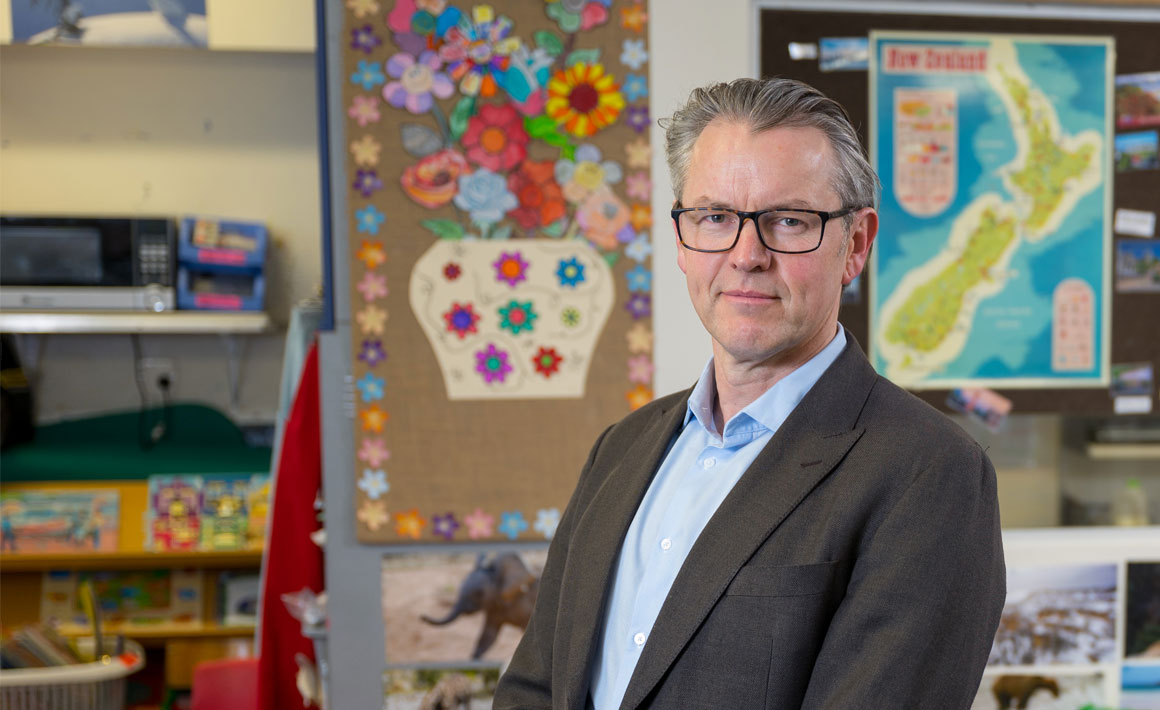 Associate Professor Tony Walls: “There appeared to be a perception that children are very likely to transmit COVID-19 … and that schools are a high-risk environment for transmission. The current evidence does not support this view.”
Associate Professor Tony Walls: “There appeared to be a perception that children are very likely to transmit COVID-19 … and that schools are a high-risk environment for transmission. The current evidence does not support this view.”Christchurch researchers used social media and a network of school principals to fast-track research and provide timely advice to government on how best to communicate with parents about COVID-19.
In early May University of Otago, Christchurch Associate Professor Tony Walls and colleagues developed an online survey to understand where parents were getting information about COVID-19 and how anxious they were about children contracting the virus at school.
1,191
1,191 survey responses in 10 days
They distributed the survey through a network of school principals, put out a nationwide media release and launched a social media campaign. Within 10 days the team, including paediatric trainees Emma Jeffs and Nathanael Lucas, had collected 1,191 responses. Participants included parents with children ranging from pre-schoolers through to high-school-aged students.
“The situation with COVID-19 developed very rapidly and was, understandably, quite a concern for parents, particularly when thinking about sending their children back to school after the lockdown,'' says Walls.
The study – which has been given to the Ministry of Education – found the most widely trusted source of information for parents was the live daily press briefings from parliament. Other government sources, particularly the dedicated COVID-19 and Ministry of Health websites, were also widely trusted.
80%
80% believed their child would catch COVID-19 if schools reopened at Alert Level 3
But despite these reliable and reassuring sources of information on the New Zealand situation, more than 80 per cent of participants believed it was likely or very likely their child would catch COVID-19 if schools were to reopen at Alert Level 3. More than 60 per cent of parents were either extremely, very or somewhat worried about their children catching COVID-19 at school in the context of widespread community transmission at Alert Level 3.
“There appeared to be a perception that children are very likely to transmit COVID-19 if they become infected and that schools are a high-risk environment for transmission. The current evidence does not support this view and the risk appears to be very low.”
Walls says evidence from New Zealand and overseas shows children generally have a milder COVID-19 disease course and better prognosis than adults. In New Zealand, none of the 80 children infected before the end of May required hospitalisation.
70%
70% of parents would vaccinate their children against COVID-19
“In anticipation of schools reopening at Alert Level 2 there was public messaging about the very low risk of New Zealand children acquiring COVID-19 from other students. But, at the same time, there were frequent media reports of severe complications from COVID-19 occurring in children in other parts of the world. These reports of emerging paediatric inflammatory multisystem syndrome seem to have caused widespread concern amongst parents, despite no established link between the syndrome and COVID-19.”
Walls says the study shows the need for clear and accurate communications from public health officials around the true risks to children of catching COVID-19 in schools.
The study canvassed parents on their willingness of vaccinate their children if a vaccine for COVID-19 was developed. A large proportion of parents (70 per cent) would get their children vaccinated.
“This may reflect confidence in New Zealand public health recommendations and the national immunisation programme,'' he says.